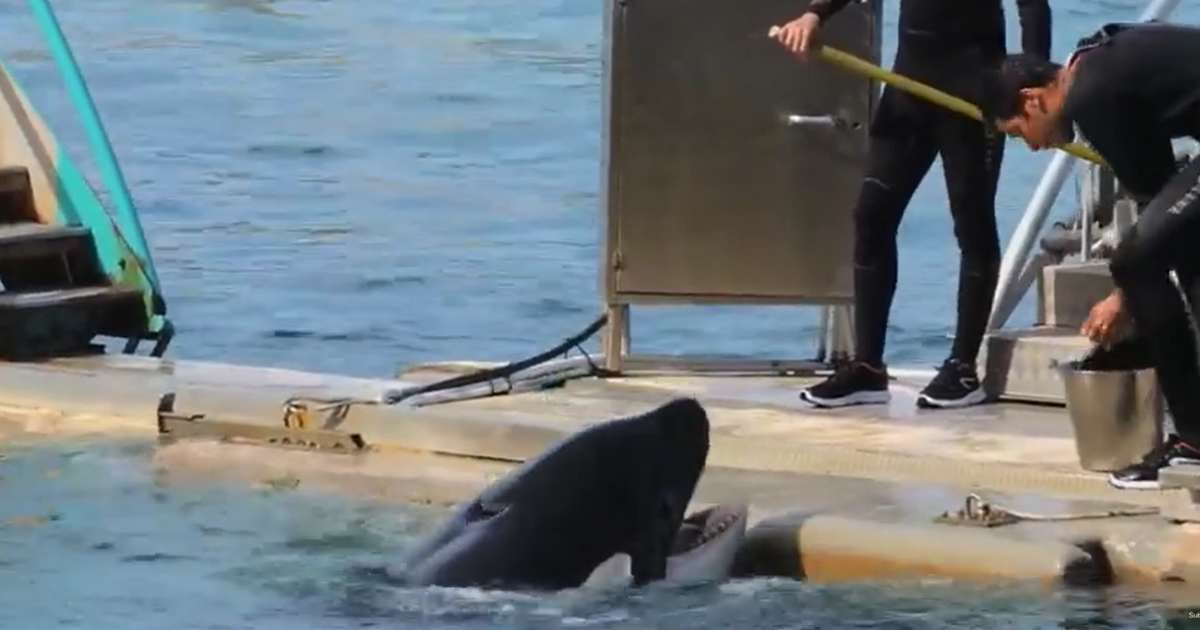Researchers Amazed to See First-of-Its-Kind Killer Whale Imitating Human Speech, Leave Everyone Terrified

Speech is a distinctive quality of almost all groups in the world. Different languages are often an advantage when two distinct groups come face-to-face with each other. Hence, it is not surprising that when a killer whale starts speaking some English words, it becomes a bit of a concern for some, stated the LAD Bible. This unique instance was detailed in a study published in the Proceedings of the Royal Society B.

The study mentions how a killer whale named Wilkie uttered the words 'hello', 'one, two', and 'bye-bye.' Some researchers also believe that the creature uttered their trainer's name, 'Amy', in the recording. Though these words aren't coherent sentences, the whale's ability still terrified certain listeners. On the lighter side of things, the whale was also captured blowing a raspberry, which sounded like human farts.
Imitation has long been a feature associated with orcas, according to The Guardian. The study aimed to estimate orcas' capability in imitating human speech. Therefore, the experts used the word 'hello' around Wilkie, who was placed in an aquarium in France, as they believed nothing similar to the word had ever been heard by the whale. To their surprise, she easily picked it up. Despite witnessing Wilkie imitate multiple words of human speech, Josep Call, professor in evolutionary origins of mind at the University of St Andrews and a co-author of the study, does not think she actually understands it. He claimed that there has been no proof to date, which showcases that the whale understands what 'hello' actually stands for.
In the exercise, Wilkie was at first asked to mimic three familiar orca sounds made by her three-year-old calf, Moana. Thereafter, she was exposed to five unfamiliar orca sounds along with noises resembling a creaking door and blowing a raspberry. The last step was to familiarize her with human words "hello", "Amy", "ah ha", "one, two", and "bye bye" as well as human-produced orca sounds.
The team concluded that whether it was the orca sounds or human words, Wilkie was able to pick them up quickly. The study further added that two human words and all of the human-produced orca sounds were successfully imitated in the first attempt. However, only 'hello' was correctly uttered more than 50% of the time in the following trials. The results stunned experts because, despite having a different morphology, orcas were able to produce sounds of another species. It was a reflection of orcas' superior vocal and intellectual capabilities.
Through the results of the study, researchers claimed that Wilkie was the first of her kind to exhibit the ability to imitate human speech, according to the BBC. The study also shed light on how imitation could be a primary factor behind different groups of killer whales having distinct dialects. "The killer whale that we studied in captivity was capable of learning vocalisations of other killer whales and also human vocalisations by imitating them," said Dr Call. "Therefore, this result suggests this is also a plausible explanation for how killer whales in the wild learn the vocalisations of other killer whales and how they develop their dialects."